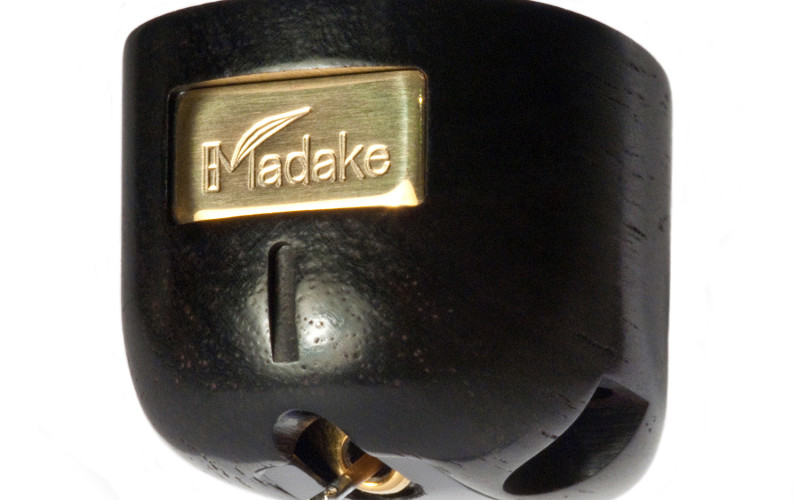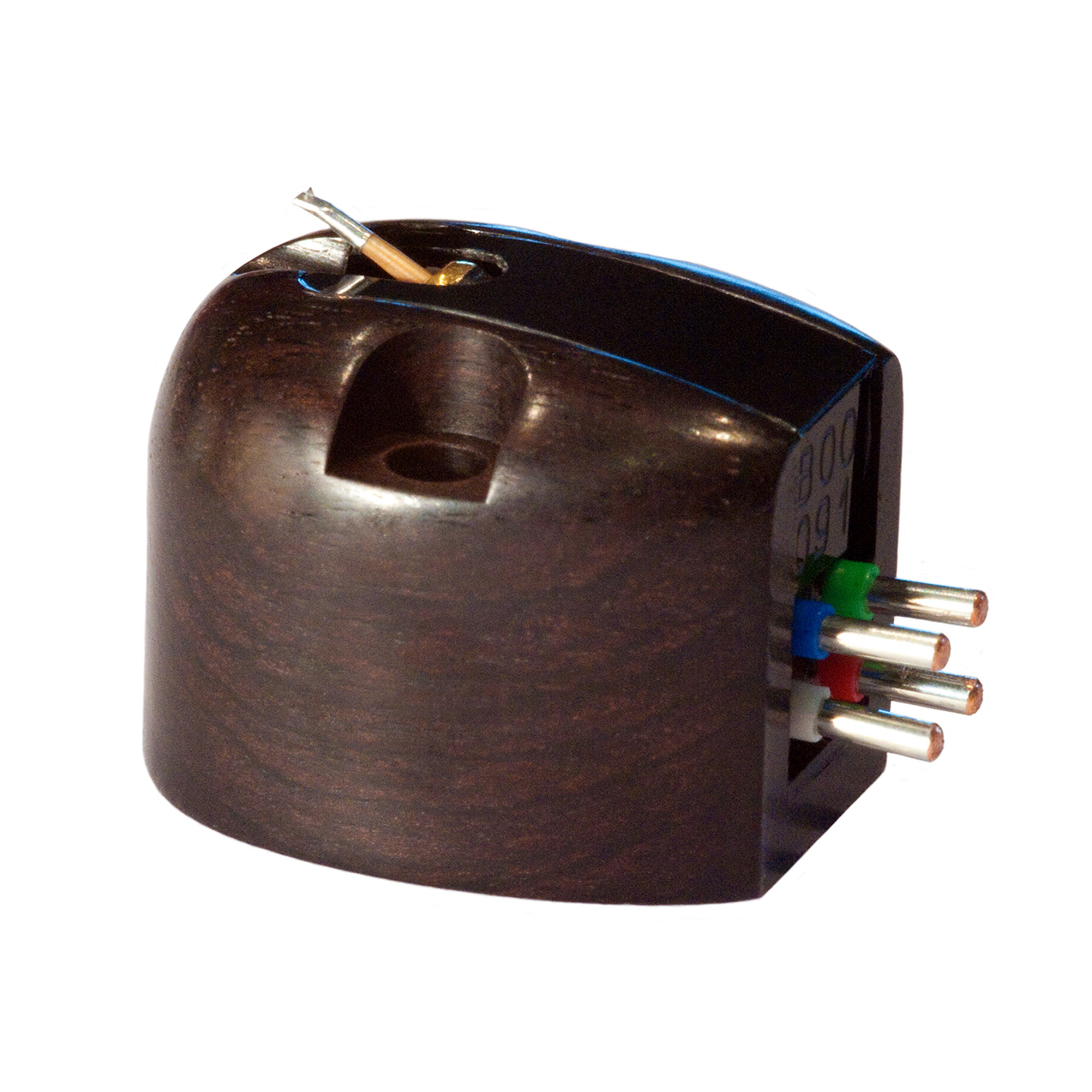New top-of-range Madake cartridge from Miyajima
The clue about what makes the Madake special lies in its name: Madake is the Japanese term for a particular species of bamboo, Giant Timber Bamboo, often used in various types of traditional Japanese craftsmanship but now quite rare.
The Madake’s cantilever, rather than being made from the usual metal (aluminum, boron) or crystalline solid (ruby, sapphire, diamond), is fashioned from this specific bamboo. Why? Bamboo is light in weight but extremely rigid. And, unlike metals and stones which contain small inherent resonances, bamboo has excellent natural damping properties.
Designer Noriyuki Miyajima, known to be a passionate artisan, went to great lengths to source the highest quality madake for the job and made an interesting discovery along the way: Thomas Edison’s General Electric company was founded to manufacture light bulbs made with madake filaments grown in one particular area of Japan. Edison had been trying to find a filament that would burn long enough to be of practical value for his invention. He sent researchers around the world in search of an appropriate material, testing the fibres of some 6,000 plant materials including more than 1,000 species of bamboo before discovering madake from the bamboo groves of Yawata, Kyoto. That discovery marked the beginning of the global electrical revolution.
So Noriyuki Miyajima went straight to the source and negotiated a supply of special madake from the Iwashimizu Hachiman-gu shrine in Yawata. However, the Madake’s cantilever is not 100% bamboo; the bamboo shaft is fitted with a short aluminium shaft, to which is attached the Shibata stylus.
Like all Miyajima stereo cartridges, the Madake’s generator system features a unique patented Miyajima cross-ring design in which the cantilever fulcrum and coils are exactly positioned in the centre of the magnetic field. All of which is beautifully housed in a handsome body of African Blackwood, known for its exceptional tonal and acoustic properties.
So how does it sound? “The most neutral-sounding Miyajima cartridge to date, but one that retains the qualities that make Miyajimas so attractive to so many” said Michael Fremer in a recent Stereophile review. “Its ability to portray instrumental textures, from the deepest bass-producing instruments to the fastest, highestfrequency percussion, was singular”.
“Miyajima Laboratory’s Madake sound is, in my experience, unique,” he concluded. “If you have a removable headshell, can easily swap out cartridges, and can afford it, you’ll definitely want to add the Madake to your arsenal. I couldn’t stop listening to it.”
Body type African blackwood
Frequency response 20Hz to 32kHz
Output level 0.23mV
Impedance 16 ohms
Recommended load 100 ohms
Tracking force 2.5g
Stylus type Shibata
Compliance 100Hz : 9×10-6cm/dyne
Weight 9.7g
Pricing & availability
The Miyajima Madake cartridge is available now priced at £3,750 (including VAT @ 20%).
About Miyajima
Japan-based Miyajima has been making phono cartridges for more than three decades. Although only discovered by American and European audiophiles in recent years, they have received rave reviews all over the world and deservedly so. With several patents under his belt, Noriyuki Miyajima is a passionate music-lover and a true artisan manufacturer. His cartridges are individually designed to produce stunning results not only from modern stereo LPs but equally from vintage mono and 78 rpm records. The generator system in the stereo cartridges features a patented Miyajima cross-ring design in which the cantilever fulcrum and coils are exactly positioned in the centre of the magnetic field. The mono cartridges feature an equally unique design: Miyajima vertical axis concentration, which ensures that the cartridge responds accurately to the horizontal modulation of a mono signal.
Every Miyajima cartridge is handcrafted in-house by a dedicated full-time team of six. The cartridge bodies are individually precision-milled from rare and exotic tonewoods including ebony, rosewood and African blackwood (mpingo). These deep and natural materials lend a vibrant and natural tonality to the sound. Finally, every single cartridge is tested electrically, and using high powered microscopes, to ensure that it meets the impressive specification.





